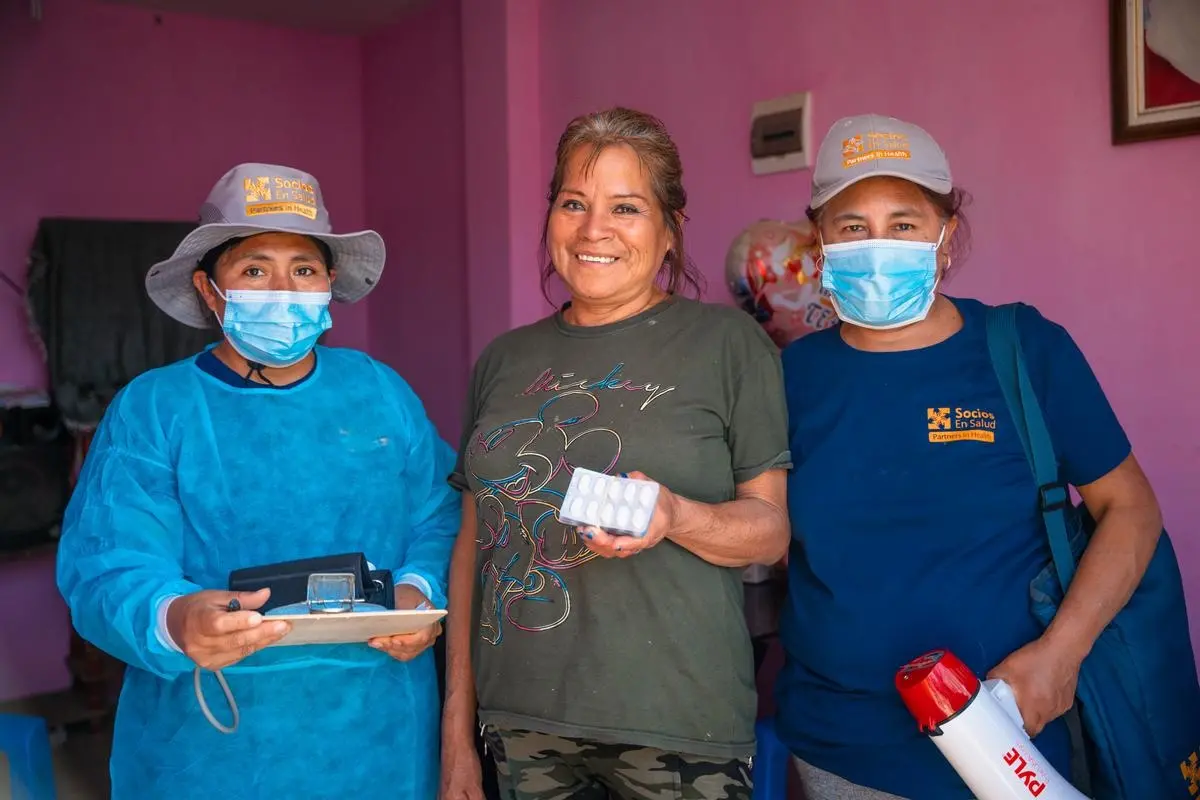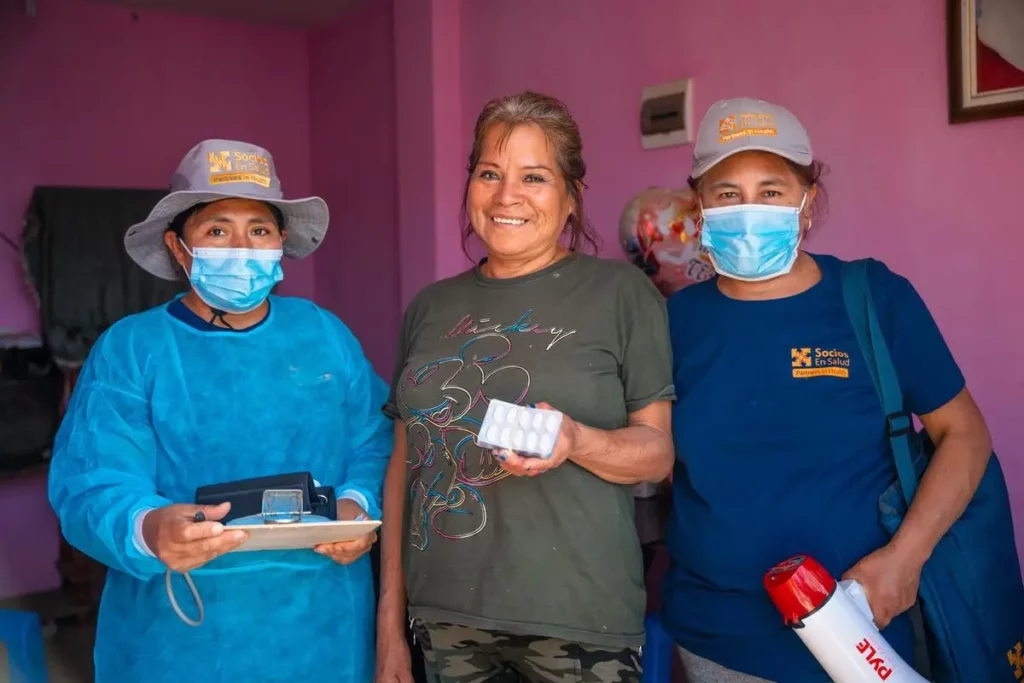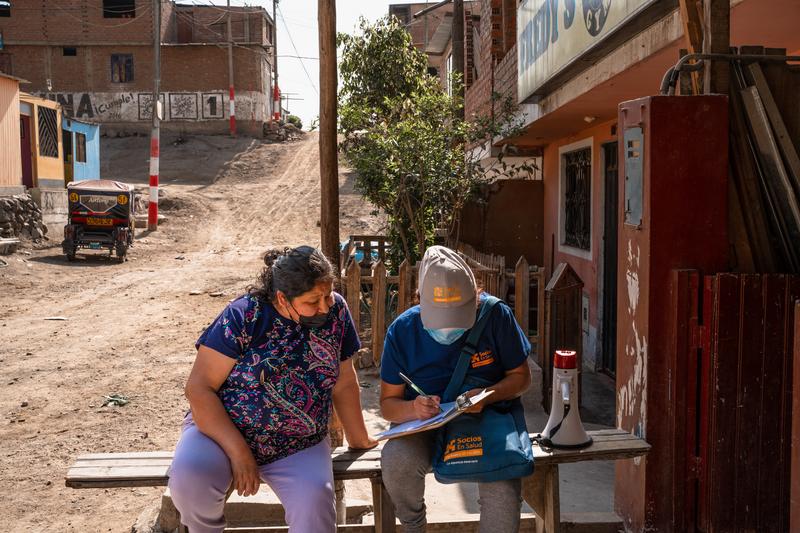Diabetes Testing and Treatment Helps Patients in Peru

PIH improves access to chronic disease care
Posted on December 21, 2022

It started with thirst.
Then came cramps. Then, hallucinations. That’s when Meysi Mendoza knew something was wrong.
The 53-year-old resident of Carabayllo, a district in northern Lima, had been feeling fine until then, selling fish, plantains, and aguaje, a fruit found in Peru’s Amazon rainforests, at the market as usual. But the sudden wave of symptoms alarmed her.
Mendoza, who has four adult children but lives alone, decided to seek help. She’d seen a poster at the local bodega about a free health campaign organized by Socios En Salud, as Partners In Health is known in Peru. It was scheduled for June.
There, at the clinic, she received a spate of tests and some unsettling news: she had diabetes.
Diabetes is a chronic health condition that affects 537 million people worldwide. Of the people with diabetes, almost 80% live in low- and middle-income countries, due to poverty and systemic barriers that prevent patients from accessing testing, treatment, and care.
For nearly 30 years, Socios En Salud has partnered with the Ministry of Health and local communities in Carabayllo and beyond to strengthen the public health system, along with improving access to testing, treatment, and care, free of charge. Since 2009, that work has included the Casas de la Salud program, which helps patients access treatment for diabetes and other chronic diseases, such as hypertension.
Casas de la Salud has connected hundreds of patients with care.

From October 2021 to June 2022, Casas de la Salud conducted follow-ups with 573 patients through home visits and virtual check-ins and accompanied 103 patients to medical appointments, helping them stay on track with their treatment plans. Sixty percent of the patients were women with Type 2 diabetes.
Mendoza was one of those patients.
After accessing screening and a diagnosis through Socios En Salud, she was connected with the Casas de la Salud program—and care.
That care included check-ins with a community health worker, one of 262 community members hired and trained by Socios En Salud to deliver medicine to patients’ homes, check in with them, and help them schedule and attend their medical appointments.
It also included a consultation with a nutritionist, who helped Mendoza review and modify her diet. Diabetes ran in her family, and she was also overweight, unable to maintain a healthy diet due to her demanding job. With the support of a nutritionist, she made plans to cut down on fat, flour, and sugar as much as possible.
“At the beginning, it was very difficult to adapt these new changes in my diet, because I was very used to eating seasoned and sugary foods,” she says. “However, I knew it was for my own good, so I followed all the doctor’s instructions.”

Now, months later, Mendoza is on track with her treatment plan. She takes three pills per day and attends monthly appointments at Hospital de Apoyo in Carabayllo, where her vital signs, blood glucose, and hemoglobin are monitored.
The community health worker assigned to her case, Elizabeth Anchante, is there to support her every step of the way, along with Socios En Salud’s team.
“I feel very grateful for the support,” says Mendoza. “The attention Socios En Salud provides is frequent. I know I can go to them quickly if I have any questions.”
Originally published on pih.org



